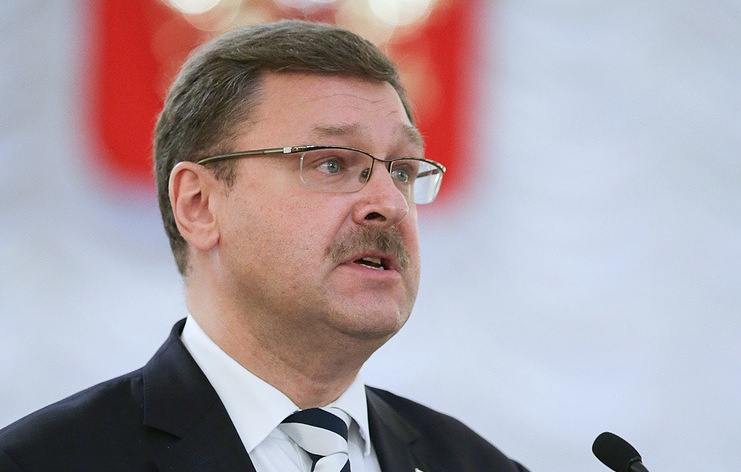MOSCOW- Russia will respond to the United States’ practical steps following its withdrawal from the Intermediate-Range Nuclear Forces Treaty (INF Treaty) rather than to the very fact of such withdrawal, a senior Russian lawmaker said on Sunday.
“We should respond not to the very fact of Washington’s withdrawal from the treaty but rather to its practical steps when it is free to do whatever it wants. And, as our president has said, Russia has all the military technical premises for that, its reaction will be rapid,” Konstantin Kosachev, chairman of the international committee of Russia’s Federation Council upper parliament house, said in an interview with the Rossiya-24 television channel, according to Itar Tass.
“I know what I am talking about, but this is classified information so far. I am sure the Americans are fully aware of that as well,” he added.
On Saturday, US President Donald Trump said that Washington would withdraw from the INF Treaty because Russia was violating the terms of the agreement. At the same time, he did not rule out signing a new agreement on intermediate-range nuclear forces with Moscow and Beijing if Russia and China provide guarantees of halting the production of such weapons.
US allegations
Kosachev added, that the Russian military has dismissed the United States’ allegations that Russian 9M729 missiles violate the INF Treaty.
“We has special hearing on that topic at the Federation Council. The military proved that neither this missile modification [9M729] nor any other modifications have ever violated the treaty,” – lawmaker said.
“Moreover, this missile technically cannot violate the treaty as it has different characteristics,” he said, adding that the United States keeps on accusing Russia of violating the INF Treaty absolutely groundlessly.
“The Americans keep on indulging in these games as the actual goal of such games is not to catch Russia in violations and compel it to abide by the treaty but to invent a pretext to ruin that treaty,” he stressed.
INF Treaty
The INF, or The Intermediate-Range Nuclear Forces, Treaty was signed between the former Soviet Union and the United States on December 8, 1987 and entered into force on June 1, 1988. In 1992, following the collapse of the former Soviet Union, the treaty was multilateralized with the former Soviet republics – Belarus, Kazakhstan and Ukraine – as successors. The INF Treaty covered deployed and non-deployed ground-based short-range missiles (from 500 to 1,000 kilometers) and intermediate-range missiles (from 1,000 to 5,500 kilometers).
The US accused Russia of violating the treaty for the first time in July 2014. Since then, Washington has been repeating its claims on many occasions, while Moscow has been rejecting them and advancing counter-claims concerning the implementation of the treaty by the US side.
According to the US data, which was shared with NATO allies, Russia allegedly started deploying its newest missiles 9M729, what Washington claims is a violation of the 1987 treaty. The Russian foreign ministry dismissed these allegations, saying that the US is giving no proof to its accusations that the 9M729 range exceeds the limits stipulated by the treaty.
H.M

